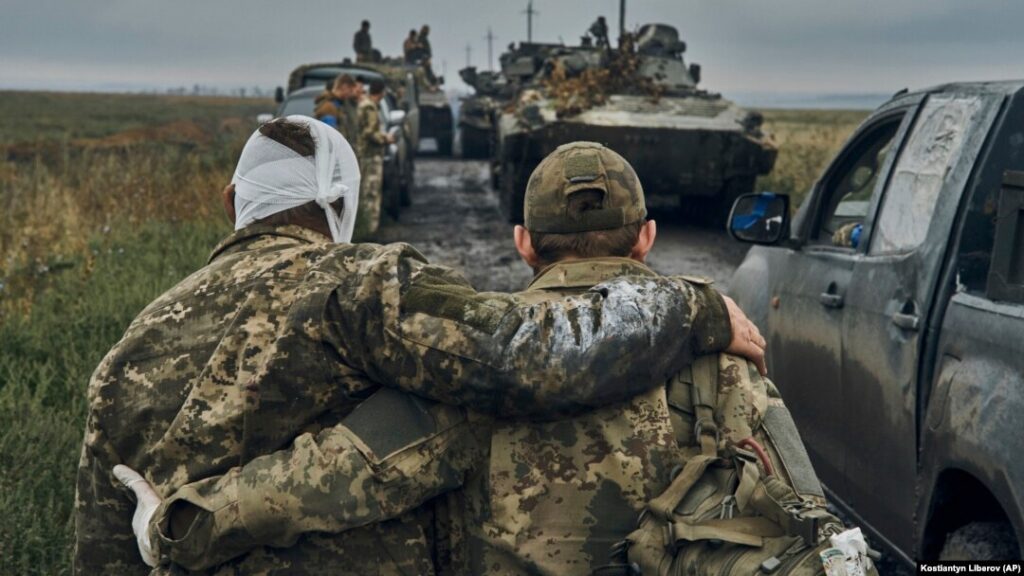
Ukraine Launches Counteroffensive, Urges Troops to Remain Resilient Amidst Ongoing Conflict
In a relentless pursuit of regaining control over its territories, Ukraine has initiated a counteroffensive, while urging its troops to maintain their resilience and prevent burnout amid the prolonged conflict. The situation in Ukraine remains volatile, and the international community closely watches these developments as the conflict continues to unfold.
Ukraine’s Counteroffensive:
Ukrainian forces have embarked on a counteroffensive in an attempt to reclaim areas under Russian occupation. The offensive, which began after months of intense fighting and occupation, signifies Ukraine’s determination to regain control of its sovereign territories. The counteroffensive comes as a significant turning point in the ongoing conflict.
President Volodymyr Zelensky, who has consistently called for international support, addressed the nation, stating, “This is a fight for our freedom, for our lives, for our land. We will do everything in our power to end the occupation and restore peace to Ukraine.”
The Ukrainian military is working relentlessly to recapture key cities and strategic locations in the occupied regions, making it clear that they will not yield to the occupation forces.
Urging Troops to Remain Resilient:
As the conflict continues to take a toll on Ukrainian troops, both physically and mentally, the government is focusing on maintaining the resilience of its forces. The prolonged nature of the conflict has raised concerns about the burnout and mental health of soldiers on the front lines.
President Zelensky, in his recent address, emphasized the importance of mental and emotional well-being among the troops. He stated, “Our soldiers are not just warriors; they are our national heroes. We must provide them with the necessary support, not only on the battlefield but also in terms of their mental and emotional health.”
The government has implemented measures to address the mental health of soldiers, including access to counseling and support services. Ukrainian authorities are committed to ensuring that the well-being of their troops remains a top priority throughout the ongoing conflict.
International Response:
The international community has closely monitored the situation in Ukraine and the recent counteroffensive. Various world leaders and organizations have expressed their concerns about the ongoing conflict, calling for a peaceful resolution and humanitarian assistance for the affected population.
The United Nations and other international bodies have repeatedly urged all parties involved to cease hostilities and engage in diplomatic efforts to resolve the crisis. Negotiations continue, but a lasting solution remains elusive, with both sides showing no signs of backing down.
Humanitarian Crisis:
The conflict in Ukraine has resulted in a severe humanitarian crisis, with millions of civilians affected by the violence and displacement. The international community has stepped up efforts to provide aid to those in need. However, the situation remains dire, with many people lacking access to basic necessities such as food, water, and shelter.
Humanitarian organizations are working tirelessly to deliver aid to affected areas, but the ongoing hostilities pose significant challenges. The safety of aid workers and the unimpeded delivery of relief supplies remain pressing concerns.
Economic Impact:
The conflict has taken a heavy toll on Ukraine’s economy. The destruction of infrastructure, disruption of trade, and the displacement of the population have all contributed to a significant economic downturn. The Ukrainian government is working to address these challenges and rebuild the nation’s economy, but the road to recovery will be long and arduous.
International sanctions against Russia, which have been imposed in response to its actions in Ukraine, have also had economic repercussions. These measures have not only affected Russia’s economy but have also had a broader impact on the global economic landscape.
Geopolitical Ramifications:
The Ukraine conflict continues to have profound geopolitical implications. It has strained relations between Russia and Western countries, with ongoing debates about the appropriate response to Russia’s actions. Sanctions and diplomatic efforts have been the primary tools used by the international community to pressure Russia to de-escalate the situation.
The conflict has also prompted discussions about the role of NATO and the security of Eastern Europe. The alliance has increased its presence in the region to deter further aggression and protect its member states.
Diplomatic Efforts:
Despite the ongoing hostilities, diplomatic efforts to resolve the crisis persist. Negotiations have taken place on multiple occasions, often brokered by international mediators. However, reaching a comprehensive agreement has proven to be an intricate and elusive process.
Ukraine, Russia, and other stakeholders continue to engage in talks, with the hope of achieving a peaceful resolution and a lasting ceasefire. The international community remains committed to pursuing diplomatic avenues to bring an end to the conflict.
Global Concerns:
The ongoing conflict in Ukraine remains a significant global concern. It serves as a reminder of the importance of diplomacy, international cooperation, and conflict resolution mechanisms. As the situation continues to evolve, the world watches with a collective hope for an end to the violence and a peaceful future for Ukraine.
In conclusion, Ukraine’s counteroffensive signifies a determined effort to regain control of its occupied territories. The government’s focus on the well-being of its troops and the ongoing international response highlights the multifaceted nature of the conflict. As diplomatic efforts persist, the hope for a peaceful resolution remains at the forefront of global concerns.





